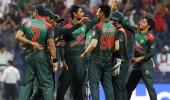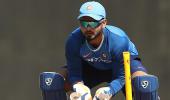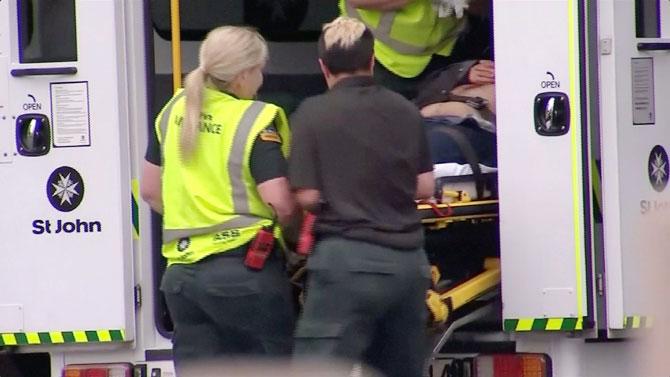
The Bangladesh cricket team narrowly avoided being caught up in a shooting at a mosque in Christchurch on Friday, that left 40 dead and forced the cancellation of the 3rd Test match against hosts New Zealand.
The team were on a bus that was approaching the Al Noor mosque for Friday prayers on the eve of the third Test at nearby Hagley Oval when the shooting began.
The team were pictured on social media walking back through HagleyPark to the cricket ground and a BCB spokesman later told Reuters the team were in lockdown at their hotel.
"All our players are now safe in their hotel which has been cordoned off," the spokesman said. "We have advised the players not to step out.
"Importantly, our players are safe."
This incident is not the first time that cricket and cricketers have been in the firing line of terrorist activities.
Cricket teams have previously abandoned tours amid outbreaks of violence.
Sri Lanka's team bus was attacked by gunmen in Lahore during their tour of Pakistan in 2009. Six members of the team were wounded, while six security personnel and two civillians were killed.
Star wicket-keeper batsman Kumar Sangakkara and mystery spinner Ajantha Mendis along with Thilan Samaraweera, Tharanga Paranavitana, Suranga Lakmal and Thilina Thushara were injured in the attack at the busy Liberty Chowk traffic roundabout, located less than a kilometre from Gaddafi Stadium, at 9 am.
Assistant coach Paul Farbrace also sustained minor injuries in the brazen attack, carried out by a dozen masked terrorists armed with rifles, grenades and rocket-launchers.
Pakistan still host nearly all of their international matches in the United Arab Emirates due to ongoing security concerns.
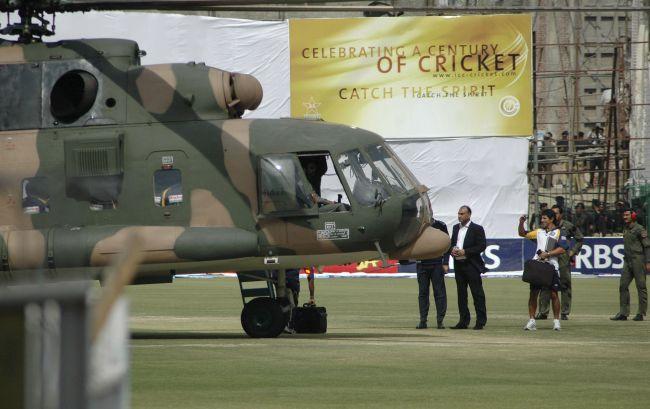
2008 was a horrible year with terrorism rearing its ugly head time and again across the Indian sub-content.
The 2008 Test series between India and England was played under the shadow of terrorism.
The England team was in India when the 26/11 terrorist attacks took place in Mumbai.
The final two ODIs in the series were called off and they went back home.
England however, returned to India for the Test series – the 2nd Test in that series that was scheduled to be played in Mumbai on December 19, 2008, was moved to Mohali for security reasons
India won that series 1-0.
In September 2008, Cricket Australia decided to go ahead with a tour of India despite a series of bomb blasts in New Delhi. The CA reviewed the security situation before pushing ahead with the tour.
But Cricket Australia were called out for their double standards because in March that year, Australia had pulled out of a tour of Pakistan after a spate of suicide bombings.
Pakistan was becoming a hot bed of terror and this forced a concerned ICC to move the Champions Trophy tournament out of Pakistan. The tournament that was scheduled to be played in Pakistan in mid-2008 was eventually played in Souith Africa to September 2009.
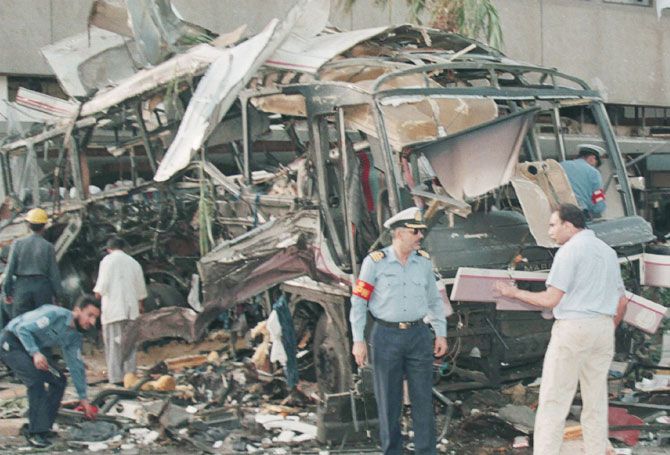
New Zealand cricketers and their support staff have somehow found themselves in the firing line of terror activities.
In 2002, a suicide attack outside the Black Caps’ team hotel in Karachi prompted them to abandon the second Test in Pakistan. New Zealand’s team physiotherapist was one of the many injured in the explosion.
The 2001, the New Zealand team cancelled a scheduled tour of Pakistan in the aftermath of the 9/11 terror attacks in the US
Two months earlier in July 2001, the New Zealand tour to Sri Lanka coincided with a suicide attack by the LTTE that closed Colombo's international airport in July 2001.
While most of the team stayed on to play, New Zealand played a match under massive security.
In February 1996, Australia and the West Indies refused to play and forfeited in preliminary World Cup matches in Sri Lanka after a bomb blast killed 80 people and injured 1,200 in the Central Bank in Colombo.
This gave Sri Lanka automatic entry into the quarter-final even before playing a game. The Lankans, led by Arjuna Ranatunga, eventually went on to win the World Cup.
In November 1992, also in Colombo, a suicide bomber detonated a bomb outside a hotel where the New Zealand team was having breakfast
Four people were killed in that attack.
Five players and the New Zealand coach were allowed to return home on compassionate grounds.
New Zealand abandoned their 1987 tour of Sri Lanka following a bombing near their hotel in Colombo in which more than 100 people were killed.
